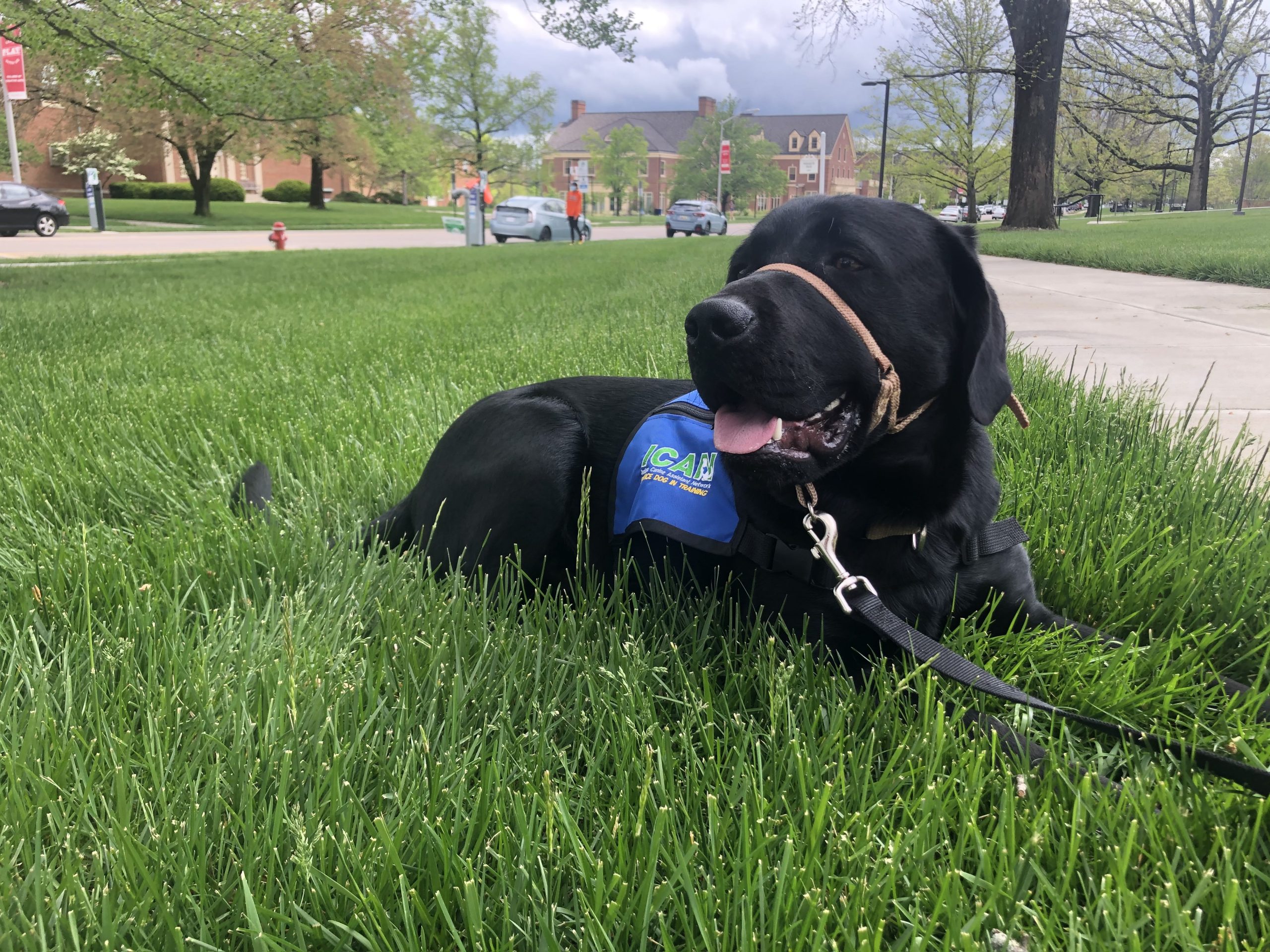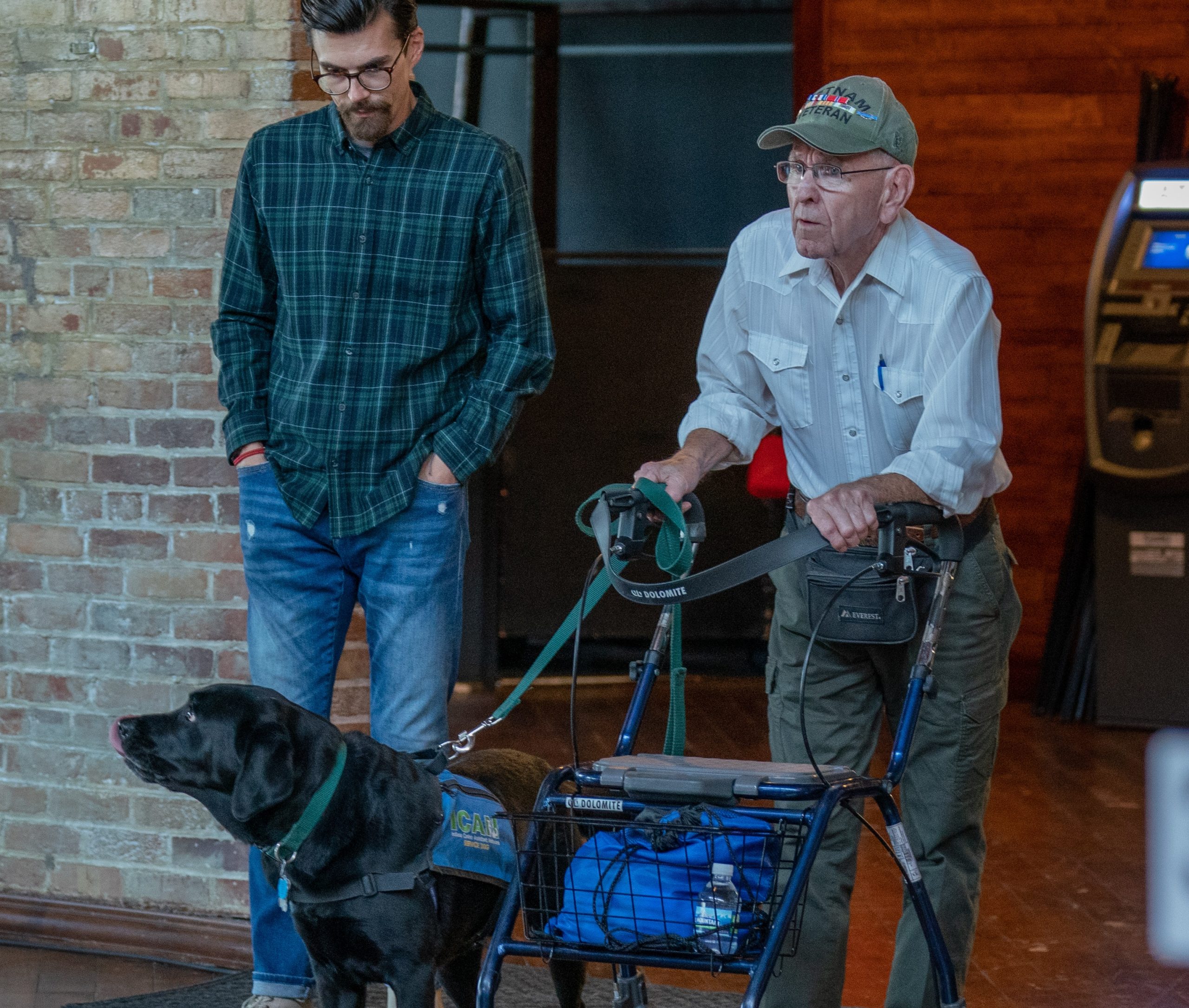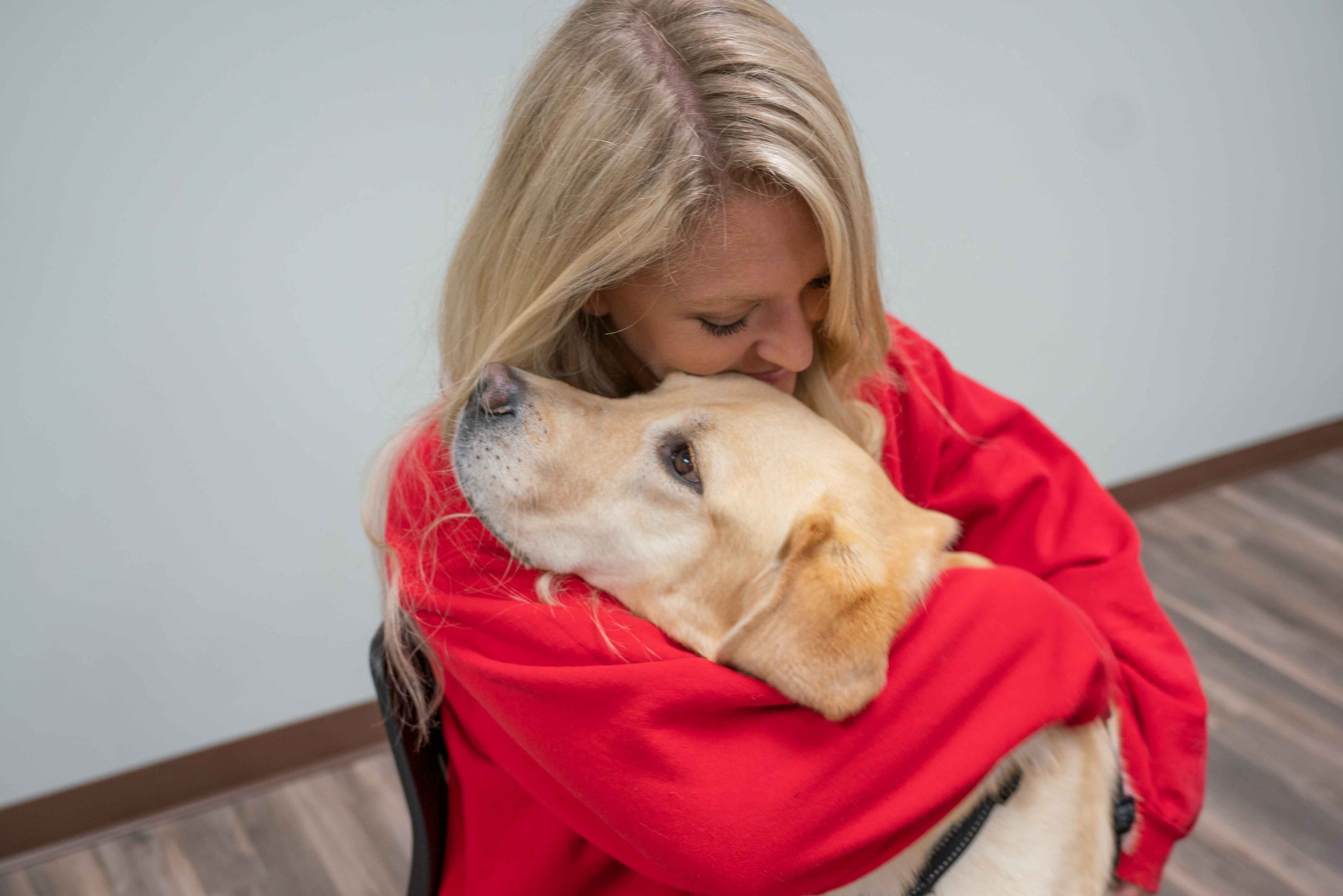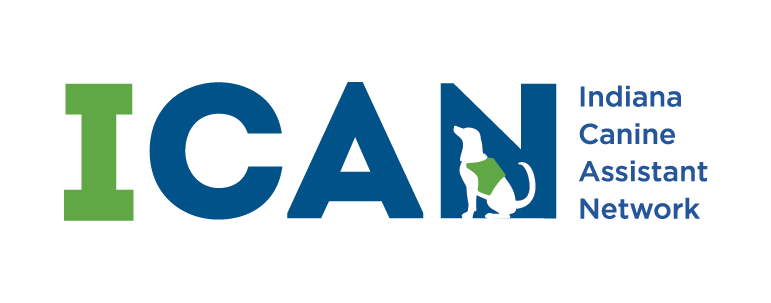
Nearly 88,000 Hoosier veterans need our help.
For many Hoosier veterans, the battle isn’t over when they come home. And the PTSD and service-related trauma that is associated with their service negatively impacts their quality of life.
We train service dogs for veterans that help individuals overcome service-related trauma.
More than 2,400 Hoosier veterans in Northeast Indiana are impacted by challenges specific to PTSD, traumatic brain injury (TMI), and military sexual trauma (MST). With an emergent need to provide well-trained service dogs to more veterans, ICAN has partnered with the VA Hospital to increase access to service dogs for these brave Americans.

A well-trained and loyal service dog can impact your recovery in ways you never thought possible.
A specialized veteran service dog can interrupt a nightmare, alert you if you’re showing signs of anxiety, and give you a sense of peace as you overcome challenges.
Our comforting and capable service dogs for veterans can be trained to:
- Apply deep pressure therapy
- Create a safe personal space
- Look around corners of aisles/doorways
- Search houses
- Alert and react to emotional responses
- Turn on lights
- Mobility Assistance (balance)
- Diabetic Alert
- Seizure Alert
- Retrieve and carry objects & medications
- Wake alert during nightmares
- Interrupt flashbacks
- In-home skilled companion
Through the VA and our Veteran Services program, those fighting service-related trauma now have the opportunity to become more independent, break barriers, and overcome challenges.
Frequently Asked Questions
Applying for a Veteran Service dog differs from an assistive or mobility dog in terms of training, costs, and availability. Below are frequently asked questions that will assist you on your journey.
There are no breed requirements or restrictions for Veteran Service dogs. However, they do have to pass a capability evaluation. We are able to assess owner-trained dogs, shelter or rescue dogs, and breeder dogs.
There is no placement fee for veterans placed with a service dog that is assisting with symptoms of PTSD, traumatic brain injury, or military sexual assault. If the veteran needs a service dog for mobility as opposed to PTSD, MST, or TBI, the costs and programs may differ. Please contact us for more information.
In the Veteran Services Division (VSD), we use foster volunteers to raise the services dogs who join us from shelters, rescues, breeders, and donations. (Dogs can also be the veteran's personal dog, if they pass all assessments.) The foster volunteer—or veteran—will raise the dog and work with ICAN's VSD trainer on teaching basic skills and modifying behavior.
At approximately one year of age, we match the dog with a veteran based on skill, temperament, size, etc. The veteran will then have the dog live with him/her and will continue the training with ICAN's VSD trainer.
During this time, training will focus on the veteran's specific needs and will continue for six to twelve months. When appropriate—and the dog passes assessments—the veteran and their new service dog will graduate.
We follow up every 90 days for a year and continue to check on the duo annually following the first year together. Veterans will still be able to work with ICAN's trainer whenever needed and will be asked to be an Ambassador for the veteran program.
Currently, we provide service dogs to veterans in the ten-county area around Ft. Wayne with service-related trauma specific to PTSD, traumatic brain injury, and military sexual trauma. All Veterans must be referred to us through the Veteran Affairs Northern Indiana Health Care System.
We have a near-future goal of serving veterans all throughout Indiana.
In ICAN's Veteran Services Division (VSD) program, we strive for wait times of no more than one year.
While we continue to work toward a shorter wait time, we recognize the importance of placing a dog appropriate for the specific veteran and their needs.
The basic training and maturity we require before we can appropriately assess "who the dog is"—which will allow us to match the dog to the right veteran—takes time.
Our focus is to be diligent and responsible in our processes and placements.
All veterans must be referred to us through the Veteran Affairs Northern Indiana Health Care System—as they determine eligibility.
The decision for a person, family, or facility to bring a service dog into their lives requires a serious, long-term commitment. While our mission is to provide as many veterans as possible with service dogs, we also want to make sure that we place the dogs in healthy, safe environments and that their training continues after the dog leaves our care.
If the veteran is in need of mobility assistance—costs, eligibility, and programs may differ. Please contact us for more information.
Through the VA and our Veteran Services program, those fighting service-related trauma now have the opportunity to become more independent, break barriers, and overcome challenges.
If you meet the following qualifications and are referred to us by the Veteran Affairs Northern Indiana Health Care System—a veteran service dog may be right for you.
- Willing and able to work with your dog every day
- Provide veterinary care and healthy food
- Unconditionally love your dog
- Letter from therapist/clinician confirming that the veteran is in treatment and would appear to benefit from having a service dog as a complimentary part of their treatment program
- Release of Information (ROI) form allowing certain ICAN representatives to have communication with VA therapists to discuss specifics about the veteran’s condition
- Continued work with the VA clinician/therapist until they release the veteran from additional treatment (this may include counseling, AA/NA, anger management, and other requirements)
- DD-214 discharge papers acknowledging Honorable Discharge
- 50% or above service-connected disability rating including PTSD, MST, and/or TBI diagnosis

